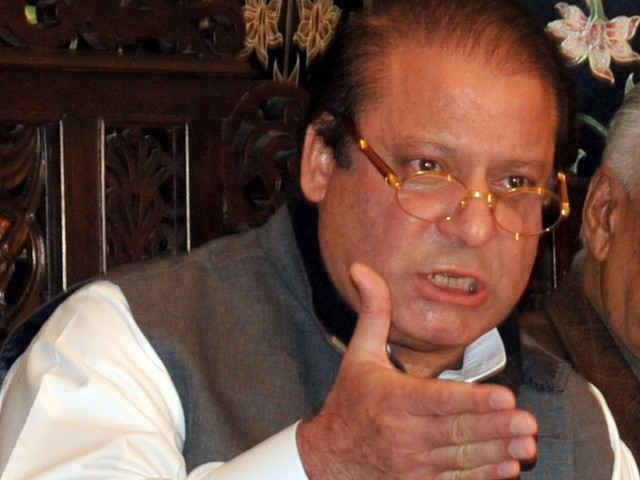A deadline for reform?
PML-N demands correction in 45 days in areas would take a decade of implementation even in advanced countries.

A deadline for reform?
It was obvious to anyone with enough economic sense that the charter was fuzzy in the extreme and emanated from the PML-N’s inner lack of cohesion over what should be done during a period when the ruling PPP was constantly inviting death with its governing blunders. The two demands that the PPP government was able to meet — reneging on the RGST and taking back the oil price adjustment — were patently wrong and would have gone against the conscience of any honest opposition party. Most other demands pertained to long-term remedies and are familiar in Third World states struggling to achieve good governance.
The government said yes to the agenda of ‘corrections’ and sat down with PML-N experts, led by Senator Ishaq Dar, the party economist who is close to its top leadership. It also broadened the scope of consultations and pledged to study proposals of reform put forward by other parties in the opposition or allies acting like opposition. The government team that sat across the table to the Ishaq Dar team included economists who would have made compelling arguments to Mr Dar about the ‘emotional’ nature of the ‘charter’ which is demanding corrections in 45 days in areas that would normally take over a decade of strict implementation, even in advanced countries. Instead of flying off the handle, Mr Dar has initially reacted carefully: he called the meeting positive.
The ‘end-this-corruption’ demand contained in the charter was applicable to the PPP, whose scrutiny in the media has tended to scandalise the nation, but no one can end deeply-embedded corruption — like stopping the massive graft that has been taking place in the tax collection machinery for the past many years — in a month, in any part of the world. Another demand pertaining to the enforcement of the ruling of the Supreme Court on the National Reconciliation Ordinance required the government to write letters to Swiss authorities for the revival of Mr Zardari’s money-laundering cases. In other words, drag President Zardari down and send him to jail. Other demands included asking the government to investigate corruption scandals, reduce non-development spending by one-third and set up an independent election body.
Anywhere else in the world, the PML-N’s charter of demands would have been deemed a non-starter and a damper for the initiating party. It might still be the case that Nawaz Sharif has deflected some very heavy pressure from the hawks within his own party to pull the PPP down and go for elections while he was basking in approval ratings of almost 80 per cent. Votes in Pakistan are hate-based and if you are in the opposition and not going for the kill all the time, you will fare well in approval polls. Mr Sharif also had to compensate for some of the unorthodox things he was doing, like issuing snide remarks about the army intending to interfere in democracy, and pushing back an MQM most able to help in yet another collapse of the PPP in power.
Immediately after the PPP ate humble pie on the RGST and the oil-price adjustment issues, the Federal Board of Revenue and the State Bank went on record as telling the government that the economy was moving towards hyper-inflation. The PML-N seemed to lose its reputation of a party of thinking people. Because Mr Sharif was not willing to jump into the abyss of the unknown together with MQM and JUI-F — both of whom he cordially despises — the PPP was able to get the MQM to relent from its aggression and thus preclude a no-confidence vote against the prime minister. Now the PML-N hawks must ponder how their ploy to push their leader to follow old toppling reflexes has come to grief.
Published in The Express Tribune, January 20th, 2011.















COMMENTS
Comments are moderated and generally will be posted if they are on-topic and not abusive.
For more information, please see our Comments FAQ